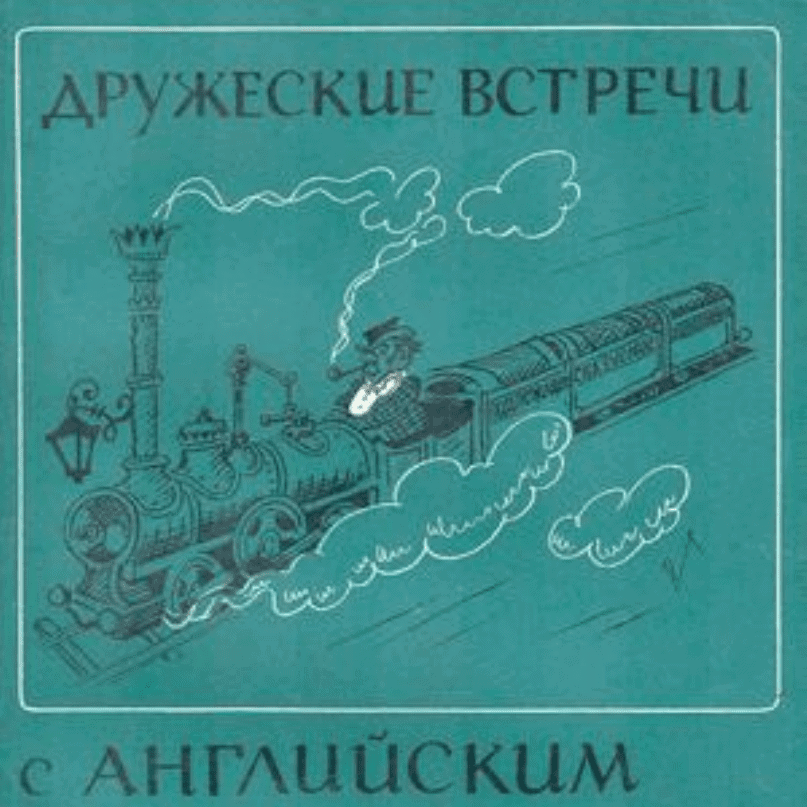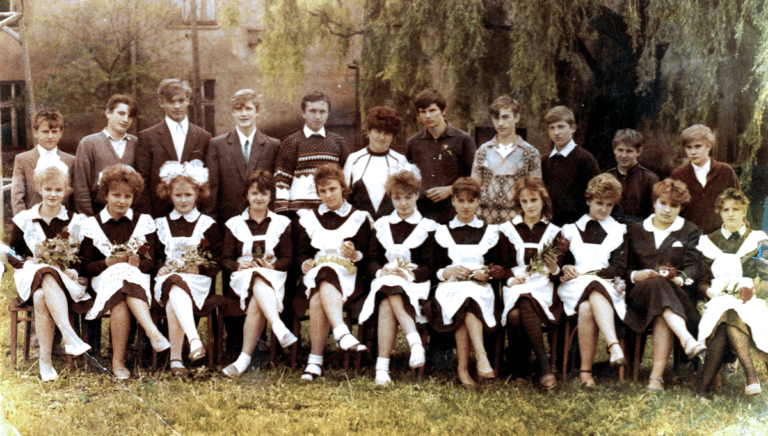This is the story about 2 things that helped me improve my English when I was still at school.
As I wrote in my previous story, my keen interest in English started with a dream, an ambition, and a desire to get better at English. Today’s story is about what helped me on my journey.
First off, improving your English in the post-Soviet countryside in the 90ies was a challenge. Here are just a few facts for you to get the picture:
We shared a teacher with another school. She didn’t give any 1:1 classes. One reason I can think of is she was busy. Besides, at that time giving classes for money was consideredquestionable behavior. In the Soviet Union doing business was illegal, and although there wasn’t the Soviet Union anymore, the mindset didn’t change overnight. I don’t remember any teachers giving classes to any of my classmates. If they did, they did it on the down-low and didn’t advertise their services.
These days, if you want to listen to something in English, you have options. Sometimes, too many options. At that time, I could only hear some English on a vinyl record player. The recordings were based on our Starkov’s textbook. The textbook itself was terrible. I still shudder when I remember unbelievably boring exercises and texts.
Reading Maria Kolpakchi’s book
If you wanted to know something, you couldn’t just google it, download it or order a reference book online. The only thing you could do is go to the library and find what you need, if you were lucky.
I was fortunate to find the only copy of Maria Kolpakchi’s book “Дружеские встречи с английским языком” (Friendly meetings with the English Language) in our local library. It was an old book released in 1975, even before I was born. But it helped me make an important breakthrough in English.
Reading this book, I could finally figure out the things I’d been struggling with before. The difference between Past Simple and Present Perfect, or talk and tell, how to ask questions correctly. I even realized what the English articles were for.
Some examples in the book were outdated: about Lenin, or the (Communist) party, or collective farms (kolhoz). But most examples were universal, vivid and so memorable that I use some of them even now.
The book was written in a form of stories – and those stories were much more effective than any rules. They made me pay attention and notice things I’d always overlooked. I started seeing patterns and nuances, and – most importantly – I started seeing how much depended on the context, not just the rules.
I was hooked. I wanted to know more.
Finishing my first graded reader
With my teacher’s permission, I raided her bookcase and found two shelves with graded readers. Graded readers are books adapted for lower levels of English. I honestly don’t remember the title of my first book in English. It was a graded reader for the 7th form students, a paperback, white and blue. I finished it within a week. During that week I caught myself thinking in English for the first time in my life. I was walking home from my grandma’s place and suddenly a complete English sentence popped up in my mind. I was so amazed that I stopped short in the middle of the street and laughed out loud.
A bit later, my mom told me that I spoke English in my sleep. I talked in my sleep sometimes, but I usually did it in my native language. Continuous reading rewired my brain and made it work differently than before.
Consistent habit of reading in English was my second breakthrough. Since then, I never stopped reading in English, not for longer than a week.
Despite my bad pronunciation and lack of speaking practice, I never had much trouble expressing myself in English – simply because I absorbed enough vocabulary and grammar from reading.


